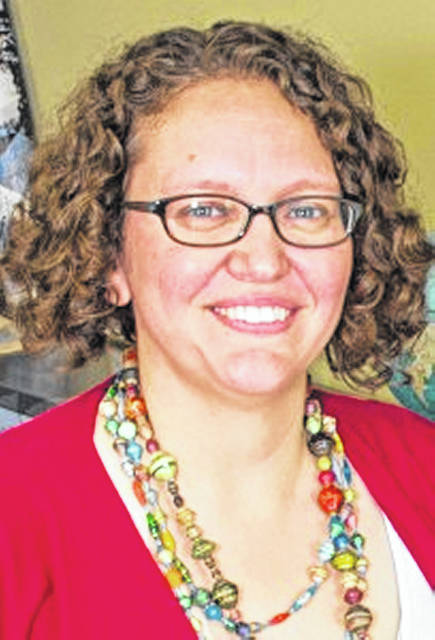
Professors pondered the probability of a planet without a pandemic to conclude a 20-lecture, 10-week online course given by Ohio Wesleyan University.
“The Future is Ours: What Does Life Look Like After Coronavirus?” was a panel discussion moderated Wednesday by political theorist Ashley Biser, who admitted the title seemed naive in retrospect, but she used a phrase by political theorist Hannah Arendt — “training the imagination to go visiting — although it isn’t foolproof, the attempt to see the world from another perspective is critical to our ability to make good judgments in uncertain times. Understanding is possible, even if we don’t have all the information.”
Biser felt the Ohio Wesleyan course had given her that ability to make sense of the COVID-19 crisis. Biser, from Minneapolis, said the people of that city are already preparing for a different future and working together to rebuild. “Not only is the future ours, the future is now.”
OWU faculty members who were among the 24 course instructors said they also learned from the other perspectives.
“A lot of people are trying to square the balance between economics and health outcomes,” said health professor Christopher Fink. “If you want to lower risk, we can all bunker down alone, but we’re all trying to find this middle ground of making best decisions. It was eye-opening.”
“At a time when there’s a lot of fear about the future, there’s a lot of mixed emotion,” said education professor Michele Nobel. “These are complex issues. Interdisciplinary work could solve real societal issues.”
“It starts out as a virus, then becomes a public health idea, then we talk about our schools and our social inequalities, food supplies and economics,” said virologist Suren Ambegaokar.
Other faculty talked about potential changes as a response to the coronavirus.
“I would ask for a genie to grant us three wishes: conscience, courage and memory. That would give us the foundation for change,” said economics professor Saif Rahman. He said incentives, motivations, norms, and constraints will drive those changes. “People are hard to change sometimes, but change is possible and constant. You just have to provide a compelling force to change the law of motion.”
“This really draws to light what is essential,” said nutrition professor Liz Nix. She said grocery store clerks and fast food workers are exposing themselves more than others to the virus. Also essential as frontline workers are farmers. Nix said she hopes we will value those people more by increasing their wages and benefits.
“There’s a sea change going on,” said comparative literature professor Anne Sokolsky. “As this pandemic is unfolding, we’re seeing Black Lives Matter. I hope we’re seeing serious social restructuring to deal with all of this injustice.”
“We need the data, but we also need a sense of tenderness and reverance,” said natural scientist Laurie Anderson. “If we really cultivate that within our society, my hope is we’d be less inclined to treat people or other living things with callousness or simply as resources. I hope we can learn from the complexity of this crisis and apply it to our next major crisis, which is climate change. If you think COVID is bad, climate change is worse, and it’s happening. We need to own up to that as fast as we can.”
Anderson also said the COVID-19 crisis has convinced her for the need to have universal health care. “Where is our humanity as a society? We have so much wealth. What are we hoarding it for? Is it not to give people a better life?”
“What are the monuments we’ll build when this pandemic is over, that we’ll remember this moment?” asked fine arts professor Carol Neuman de Vegvar. She pointed to widespread art made of George Floyd and the taking down of colonialist statues in recent weeks. “Whatever image or form they take, I hope they not only remember, but look forward and bring people together for community action. I think art can play a very significant role in that.”
“It’s often the radicals and the young at heart who push for change, and more often than not it happens in an upheaval, a cultural shift,” said music professor Nancy Gamso. “I’m looking forward to what art pushes us into the new normal.”
“I’ve learned so much from each of you over the last few months,” Biser said to her colleagues. “This is a special time and space to do this kind of learning. I look forward to the future and seeing what we all create together.”
“Thank you for participating in our first COVID-19 course “We’re in this Together: An Interdisciplinary Exploration of the Coronavirus Pandemic,” states an email Ohio Wesleyan sent to participants. “This was the first open online course that OWU has ever offered. We have thoroughly enjoyed bringing together faculty from across OWU to create this class and share it with you. We hope the class has helped you become more informed about this event that has so dramatically changed our lives and our world.”


